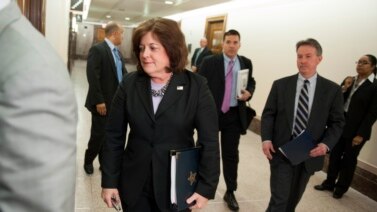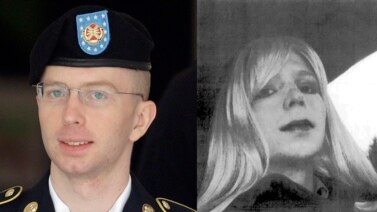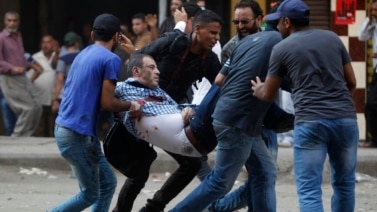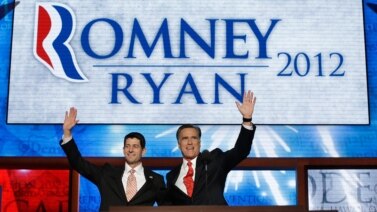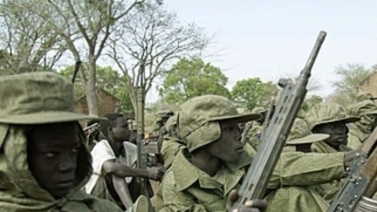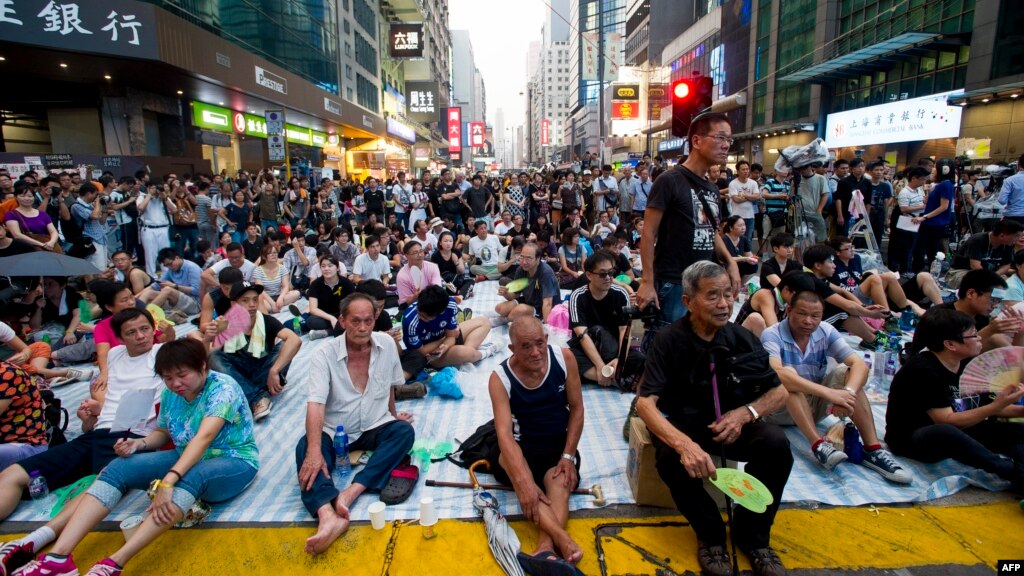
Protesters have demonstrated in Hong Kong for a fifth day. The protesters are threatening to expand their campaign for democratic reforms.
Tens of thousands of demonstrators remain camped out along at least four major roads Tuesday. The government has ordered them to leave. Police have largely withdrawn from the area.
Some observers have voiced concern that police may return again in force to clear the streets before China marks its National Day on Wednesday. Even more people are expected to join the demonstrations at that time.
On Sunday police used large amounts of tear gas and pepper spray to break up a peaceful demonstration.
The Occupy Central protest group has said it will announce plans for the group’s next action on Wednesday if Hong Kong’s leader does not resign by October 1th. It also said the official, Leung Chun-ying, must meet demands for fair elections by that day.
But Mr. Leung has given no sign as yet that he will change his position. Instead, he called for Occupy Central leaders, in his words, “to fulfill the promise they made to society.” He urged an immediate end to the protests, calling them “out of control.”
Mr. Leung said the actions of demonstrators will not change the decision China announced late last month about elections in Hong Kong. He said the decision shows that the central government will not obey what he called “illegal threats made by certain people.” He said he does not believe that by continuing what he called their illegal actions that protesters will make the government change that decision.
When the government made its ruling for the 2017 elections, it said Hong Kong voters would be permitted to elect their next leader. But it also said only three candidates could compete. And it said a pro-government committee first would have to investigate them.
David Zweig is a professor at the Hong Kong University of Science and Technology. He says the dispute surrounding the elections and Mr. Leung’s leadership is not the only issue causing protests.
“You know we got October 1st coming up, 65th anniversary of the founding of the People’s Republic of China. I worry that Xi Jinping may decide that he does not want to celebrate that event with students occupying the government headquarters or surrounding the government headquarters down in Hong Kong.”
Xi Jinping is general secretary of the Communist Party of China.
The United States has said it is closely watching the situation in Hong Kong. The Obama administration says protesters should have the right to peacefully express their opinions.
I’m Jonathan Evans
This report was based on stories from VOA reporter William Gallo and correspondent Bill Ide in Beijing. Jerilyn Watson wrote the report for Learning English. The editor was George Grow.
Words in this Story
campaign - n. a competition by opposing views or political candidates to seek support
permit - v. to let, to make possible
surround - v. to form a circle around, to be in positions all around someone or something
occupy - v. to take and hold or control by force
Occupy Central is a group that calls itself "a nonviolent direct action movement that demands a fully democratic government in Hong Kong." The full name of the group is Occupy Central with Love and Peace. The group's campaign was initiated by Benny Tai Yiu-ting, an Associate Professor of Law at the University of Hong Kong. The group has a twitter page at https://twitter.com/OCLPHK
